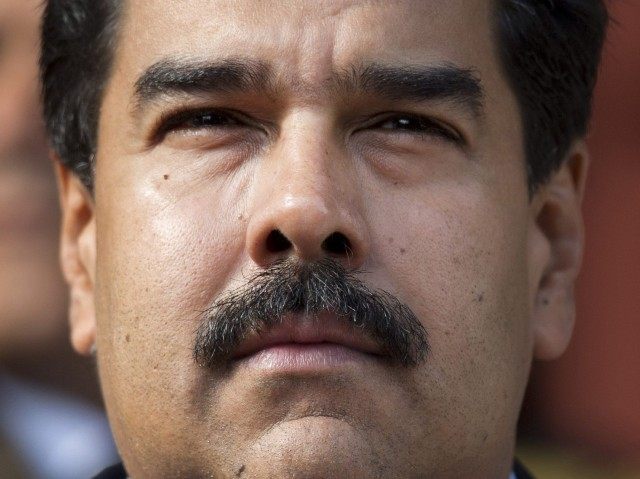A number of former Venezuela cabinet members under Hugo Chávez are calling for an investigation into hundreds of billions of dollars that are unaccounted for in national oil revenue, accusing members of President Nicolás Maduro’s government of embezzling the funds.
According to Reuters, former ministers Héctor Navarro and Jorge Giordani are accusing government workers of pocketing more than $300 billion in crude oil revenue over the past decade. They are demanding the government account for these funds and investigate into whose hands they went. Navarro has personally requested that “a state ethics council review the operations of the 13-year-old exchange control mechanism that opposition leaders have described as a ‘corruption machine.'”
Another former Chávez minister, Ana Elisa Osorio, petitioned the Republican National Council, a government watchdog group, to investigate the case. “In the last two years, we have found missing $20 billion from the Republic’s funds. This is why we resort here to calling for a meeting of regulators, the treasury, and the national attorney’s office,” Osorio said.
The Republican National Council rejected the petition to investigate the case, which Osorio called “a slap in the people’s face.”
Navarro, who still identifies as a socialist despite having been expelled from the Venezuelan United Socialist Party (PSUV), told Reuters that “thieves have no ideology” and he hopes to expose the “gang … that was only interested in getting their hands on financial resources, on (the country’s) oil revenue.”
While the ruling party has rejected their call to investigate, the Democratic Unity Roundtable – the opposition party which now controls the national legislature – has assured the group that they will call Navarro and Giordani to testify on what their investigation found.
Navarro was expelled from the PSUV after objecting to how Maduro organized his government. In August, he decried the lack of discipline within the party and accused Maduro of keeping dangerous advisers close to him. “The National Leadership Council of the PSUV at this time, according to what I’ve heard, has not met for 18 weeks. Chavez used to demand that the party meet weekly, and would even go so far as to check each person’s attendance,” he told Venezuela Analysis, insisting that “there are advisors misguiding the president, with the intention of ending the revolution from the inside.”
Navarro recently criticized Maduro for expanding the number of people in his cabinet, suggesting that even Maduro himself “is incapable of knowing the names of all his ministers.”
“It’s madness,” he said. “It’s unmanageable to have a cabinet with thirty ministers.”
Venezuela’s economy has suffered significantly in large part due to collapsing global oil prices. In mid-January, Maduro declared an “economic emergency,” which would allow him to rule by decree and override any reforms the opposition legislature would choose to make into law. Experts estimate Venezuela’s inflation rate to be about 270 percent, though the government does not openly provide such statistics.
In response to the increasingly dire economic situation, Maduro also appointed a new economic minister – Luis Salas, a Marxist who has written that “inflation does not exist.”
Maduro has also sent his oil minister, Eulogio del Pino, on a global trip to visit friendly nations in the hopes of organizing a decrease in production of oil internationally. “Mr del Pino has led the charge for an emergency Opec meeting. However, Gulf countries and others such as Iran have said a gathering of ministers without a solid outcome would be more detrimental for the oil market,” the Financial Times reports.
DolarToday, a Venezuelan website that regularly publishes data on the black market value of the Venezuelan bolívar, reports Wednesday that Venezuelan government officials are also considered an up to 3,000-percent increase in the price of oil domestically.

COMMENTS
Please let us know if you're having issues with commenting.